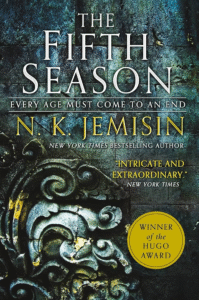Exploring the Depths of Reality: A Look at M. John Harrison’s Light

M. John Harrison’s Light is a novel that defies easy categorization, a shimmering, elusive work that blends hard science fiction with cosmic horror, cyberpunk aesthetics with a deeply philosophical exploration of consciousness, identity, and the nature of reality. Published in 2002, it stands as a testament to Harrison’s singular vision, a book that is as unsettling as it is beautiful, and as intellectually stimulating as it is emotionally resonant.
Intertwined Narratives and Cosmic Dread
At its core, Light weaves together three seemingly disparate narratives. The first follows Michael Kearney, a theoretical physicist haunted by a past encounter with an alien entity known as the “k-worm,” which has left him with a fractured psyche and a desperate longing for connection. The second strand introduces Seria Mau Genifer, a genetically engineered assassin and starship pilot in a far-future space opera setting, entangled in a dangerous game of corporate espionage and cosmic mystery. The third, and perhaps most enigmatic, focuses on Ed Chianese, a former police officer in a grimy, near-future London, whose life spirals into a nightmarish obsession with a strange, otherworldly presence.
What makes Light so compelling isn’t just the intricate plotting or the vivid world-building, but Harrison’s masterful ability to intertwine these narratives, creating a sense of inescapable interconnectedness. The lines between past, present, and future blur; the boundaries between human and alien, real and hallucination, dissolve. The “k-worm” that torments Kearney seems to manifest in different guises across the timelines, a pervasive, insidious force that hints at a universe far stranger and more terrifying than humanity can comprehend. This cosmic horror element isn’t about jump scares or monstrous creatures, but rather an existential dread born from the realization of humanity’s insignificance in the face of incomprehensible forces.
The Lyrical Prose and Thematic Depth
Harrison’s prose is a significant part of Light‘s allure. It’s precise, lyrical, and often imbued with a melancholic beauty. He doesn’t shy away from the grotesque or the unsettling, but renders them with an almost poetic detachment, allowing the reader to grapple with the implications rather than simply react. This stylistic choice mirrors the novel’s thematic concerns: the struggle to make sense of a reality that resists easy understanding, the search for meaning in a universe that seems indifferent to human suffering.
Identity, Consciousness, and Societal Critique
One of the novel’s most enduring themes is the exploration of identity and consciousness in a technologically advanced, yet spiritually impoverished, future. Seria Mau, a genetically engineered being, constantly grapples with her own sense of self, her memories perhaps implanted, her emotions perhaps manufactured. Kearney, too, is a fragmented individual, his mind a battleground between sanity and madness. These characters, in their individual struggles, reflect a broader human condition in Light‘s universe: a sense of dislocation, a longing for authenticity in a world increasingly artificial and detached.
Moreover, Light subtly critiques the very notion of progress. While humanity has achieved interstellar travel and advanced genetic engineering, it has also created a society riddled with corruption, violence, and profound alienation. The glittering technological marvels often conceal a deeper rot, suggesting that scientific advancement alone cannot address the fundamental existential anxieties of humanity.
A Lasting Impact on Speculative Fiction
In conclusion, M. John Harrison’s Light is a tour de force of speculative fiction, a novel that rewards multiple readings and lingers in the mind long after the final page. It’s a work of profound intellectual ambition and startling emotional depth, a testament to the power of science fiction to explore the most fundamental questions of existence. By blurring genres and challenging conventions, Harrison crafted a truly unique and unforgettable reading experience, solidifying Light as a seminal work in contemporary speculative fiction and a haunting meditation on the fragility of sanity and the unfathomable depths of the cosmos.




















